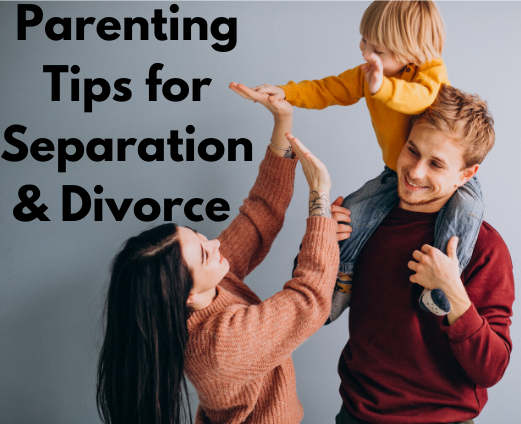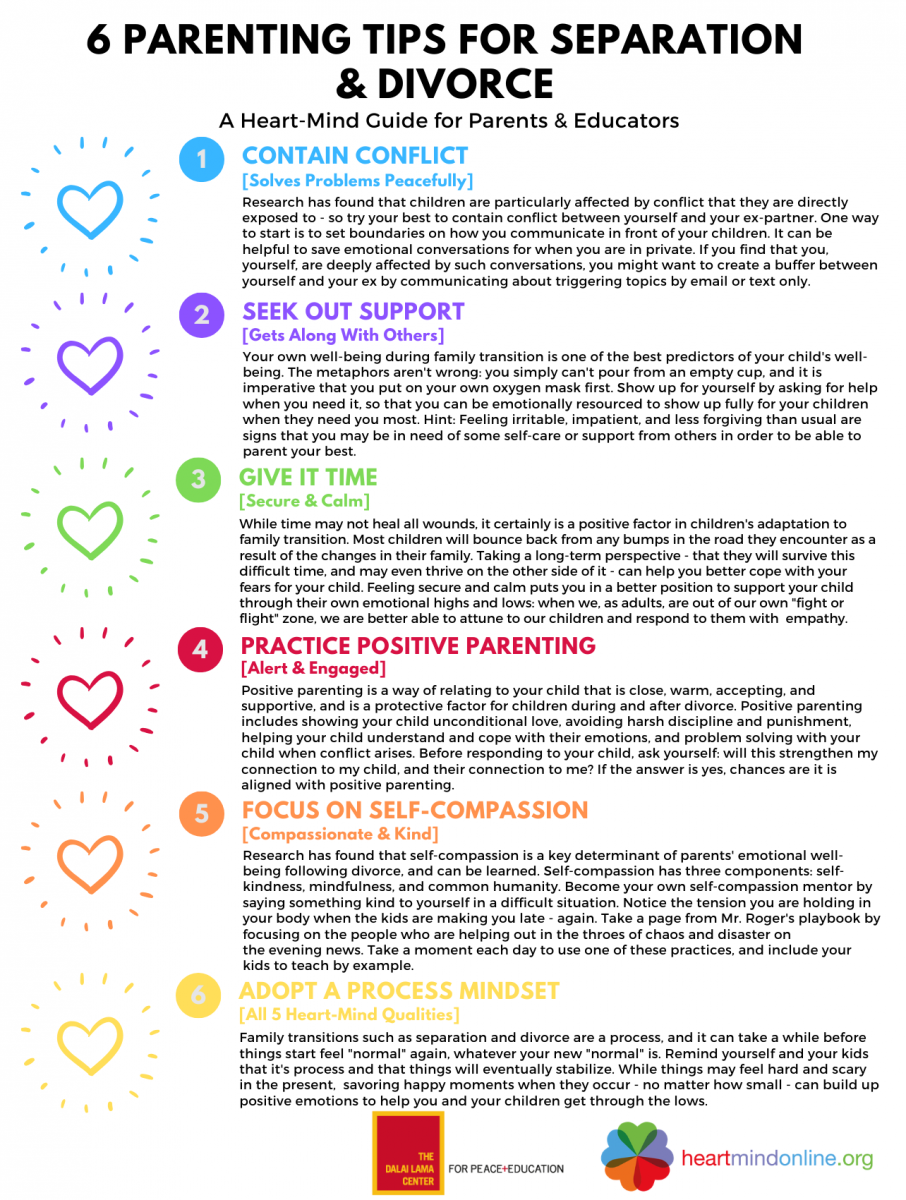
Parenting through separation and divorce is not for the faint of heart. Such family transitions represent a unique life stage in which both parents and children can be most vulnerable. In the midst of all the change and emotional upheaval, parenting your "best" during these times can feel at times beyond reach.
The good news is that you don't need to be your best at all times in order for your children to adapt to the changes in their family in healthy ways. They just need you to be good enough[1]: to show up for them physically and emotionally, to model self-compassion by taking care of your own needs, and to bring a growth mindset[2] to the process of establishing your new "normal" as a family.
The Infographic "6 Parenting Tips for Separation & Divorce" aims to help you do just that, by offering evidence-informed ideas for parenting through family transitions that are grounded in the 5 Heart-Mind Qualities.

Click below to download (PDF File):
References:
(1) Hetherington, E. M. (Ed.). (1999). Coping with divorce, single parenting, and remarriage: A risk and resiliency perspective. Lawrence Erlbaum Associates Publishers; (2) Amato, Paul R. (2000). “The Consequences of Divorce for Adults and Children.” Journal of Marriage and Family, vol. 62, no. 4; (3) Uphold-Carrier, Holly, and Rebecca Utz. (2012). “Parental Divorce Among Young and Adult Children: A Long-Term Quantitative Analysis of Mental Health and Family Solidarity.” Journal of Divorce & Remarriage, vol. 53, no. 4; (4) Becher, Emily H., et al. (2019). “Positive Parenting and Parental Conflict: Contributions to Resilient Coparenting During Divorce.” Family Relations, vol. 68, no. 1; (5) Sbarra, David A., et al. (2012). “When Leaving Your Ex, Love Yourself.” Psychological Science, vol. 23, no. 3, pp. 261–269; (6) Amato, Paul R. (2000). “The Consequences of Divorce for Adults and Children.” Journal of Marriage and Family, vol. 62, no. 4; Image from freepik.com
A growth mindset views challenge as an opportunity to get stronger and smarter, and understands setbacks as valuable learning opportunities. Click "more" to read a Heart-Mind Online resource with evidence-informed tips to foster a growth mindset in the children you care about.
Being a "good enough parent" means meeting your child's needs in a sensitive, responsive, and empathic way most of the time. Some research shows that its "good enough" if you're able to "get it right" at least 50% of the time.
